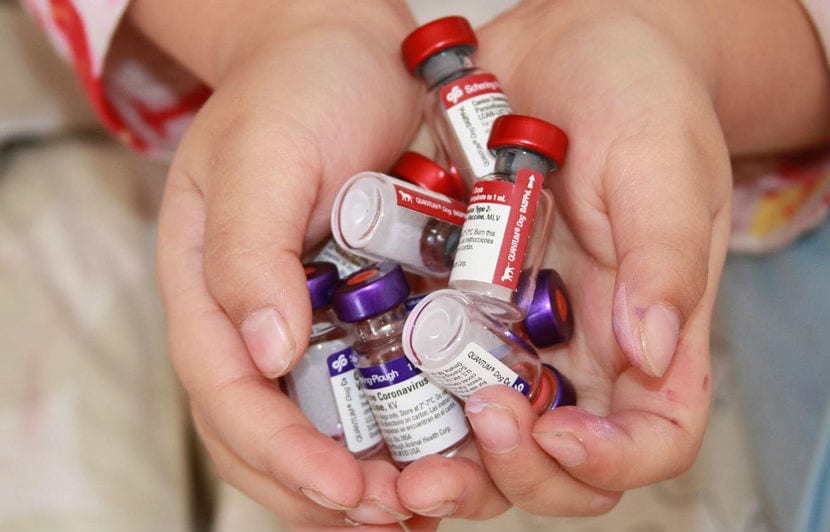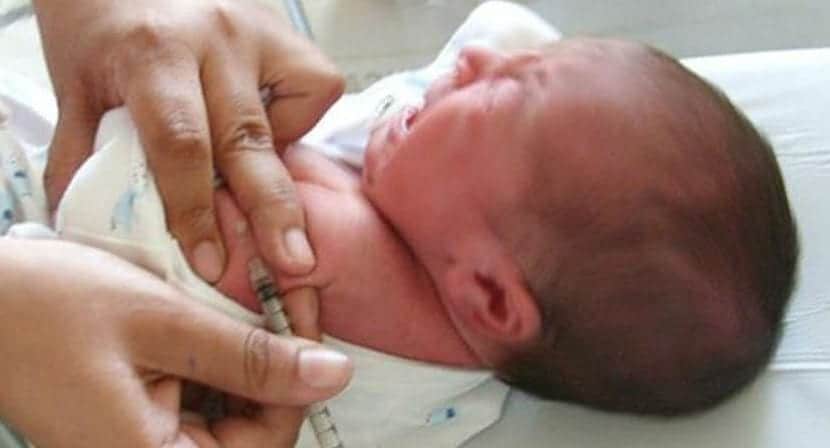
A few weeks ago, a debate emerged in the media about the need to vaccinate pregnant women against pertussis. This is due to the fact that in recent years there has been a rebound in contagion of this disease in the population, also affecting children under 2 months of age, which is the age at which the first dose of vaccine will be given, thus that these newborns have no defenses. If they were exposed to the bacteria that cause the disease, they could become infected and suffer from whooping cough, which can be a very serious situation. This has created an important social alarm and requests for vaccination by pregnant women have skyrocketed, causing a certain shortage of said vaccine.
What is whooping cough?
Whooping cough is an upper respiratory infection caused by a b . It is a disease that can affect people of any age and be very serious in babies.
When an infected person sneezes or coughs, they expel tiny droplets containing the bacteria, which move through the air, spreading the disease with ease from one person to another. Untreated patients can be contagious for several weeks after the onset of the cough.
Most babies who get whooping cough get it from the people who give them take care or visit, who sometimes do not even know they have the disease. Whooping cough in babies causes symptoms that can be very serious.
Symptoms of whooping cough
Symptoms of pertussis usually appear 7-10 days after a person has been in contact with the disease, but sometimes it can take up to 6 weeks before they appear.
At first, the symptoms of the disease are the same as those of a common cold: stuffy nose, runny nose, sneezing, and cough or fever. As the disease progresses, the traditional symptoms of whooping cough appear, which are:
- Coughing fits, followed by a loud hiss when taking in air.
- Vomiting with cough
- Exhaustion after coughing spells
The severe cough usually lasts a few two weeks and, thereafter, it decreases in frequency and severity, although full recovery may take several more weeks. Between the complications That may present include pneumonia, otitis media, respiratory failure, encephalopathy, and seizures. Whooping cough can even cause death.
Diagnosis and recommendations
El early diagnostic it is essential to start treatment as soon as possible. It is desirable that it begins during the first phase of the disease (phase in which it can be confused with a cold), so it is more likely to reduce the intensity and duration of the symptoms. Whooping cough is treated with Antibiotics, which should always be prescribed by the pediatrician.
Once the diagnosis of pertussis is confirmed and while the treatment lasts, it is advisable to:
- Favor the baby's rest.
- Keep the home free of irritants to prevent coughing fits more easily.
- Offer the child small and frequent meals to avoid vomiting, and encourage him to drink plenty of fluids to avoid dehydration.
The first 3-4 months of life are the period of greatest risk of mortality due to whooping cough, given that there is a greater probability of developing complications of the disease, mainly because the first dose of the vaccine is administered to the 2 months of life.

Prevention
The main preventive measure to avoid whooping cough is vaccination. The vaccination of the pregnant woman, from the 27th week of gestation, has proven to be the most effective way to protect the newborn, because the transmission to the fetus of antibodies (defenses) during pregnancy, through the placenta, will protect it until the first doses of the vaccine given at 2 and 4 months of age. The pertussis vaccine is safe and well tolerated by pregnant women.
Passing whooping cough does not guarantee permanent immunity, so even people who have suffered from it should be vaccinated. The vaccination of the baby's environment, that is, of all the people who have contact with the infant (parents, siblings, grandparents ...), so that they are protected until they receive the first doses of the vaccine. Experts call it the nest strategy and it is estimated that it can reduce pertussis cases in infants under 70 months of age by up to 3%.
In recent times, important changes are being made in preventive measures against this disease. In September 2012, the UK recommended whooping cough vaccination for women pregnant women between weeks 28 and 36 (according to the authors up to 38) of gestation due to the high number of cases of whooping cough in that country and, above all, due to the death of 12 infants as a result of this disease. Since then, pertussis in pregnant women have decreased the cases globally and, also, in those under 3 months of age.
In Spain, Catalonia has become the primera autonomous community to adopt this measure, because between 2008 and 2011 whooping cough caused the death, in Catalonia, of nine babies under one year of age. and, in June 2014, Asturias has also implemented this measure in pregnant women.